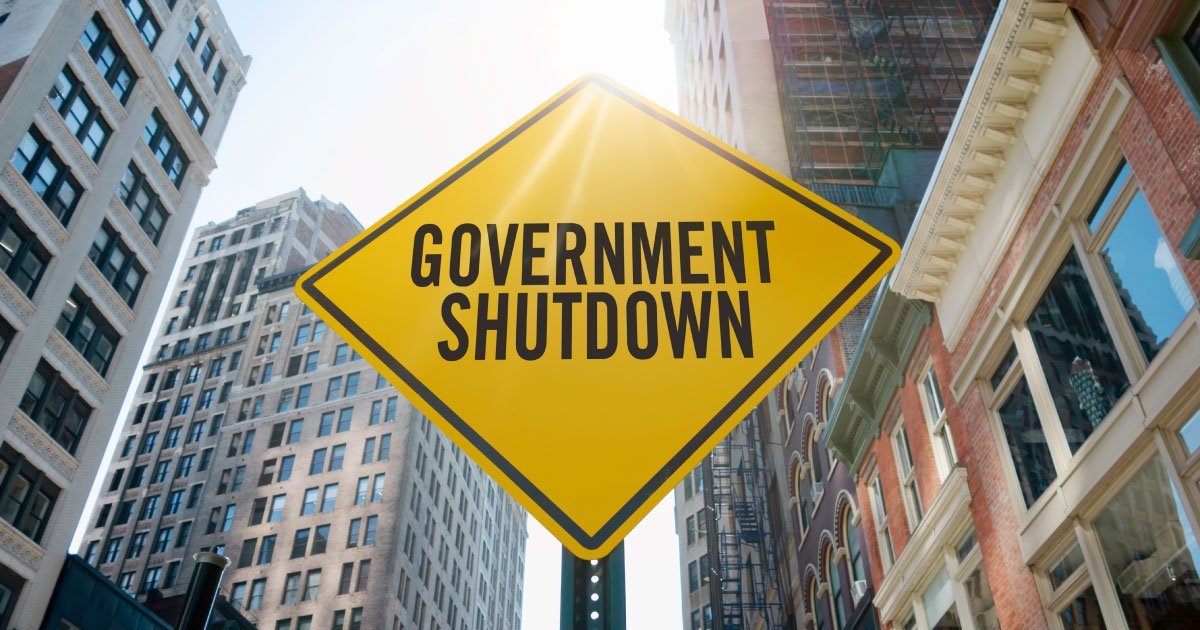","after_title":"","widget_id":"widget-0-0-1"}}" />[/siteorigin_widget]
My husband is a police officer for the Smithsonian Institution. Depending on what Smithsonian leadership and the U.S. Congress decide today, he could be taking an unplanned vacation until the U.S. government shutdown ends.
For us, the shutdown means worrying about whether we can pay next month’s rent, because he’ll accrue pay but won’t get a paycheck for the duration. It means wondering if the days off will count against his paid time off, which would affect vacation plans. It means reducing our budget, because during the shutdown he won’t get his normal extra income for working nights.
But the shutdown won’t be as bad for us as for many other people we know here in Virginia. Some of our friends have been furloughed without pay for the duration. Friends who are military dependents have lost access to resources managed by furloughed civilian contractors, in addition to delayed paychecks.
We talk so much here about preparing for natural disasters. Life’s curveballs – major illness, car accidents, job loss, government shutdown, etc. – are much more common. My family hadn’t made many preparations for life’s curveball since moving to Virginia in August.
Here’s what we did and what we should have done.
We developed our interests into additional income. I’m a full-time mom, but my college degree in science writing means I can earn additional income writing from home. Until the shutdown ends and my husband gets paid, my secondary income is our primary income.
Figure out a way to develop an interest into an income. If you enjoy music, can you teach it? If you like tinkering, can you repair things? Hobbies can also help in natural disasters. During Hurricane Irma last year, a group of Florida-based amateur radio operators became a communication lifeline between hurricane shelters and utilities.
We have been trimming our budget so we can get by on less income. By reducing perks and using old phones, we cut our cell phone bill by a third. And we’re looking for ways to save more. A family member used to work as a manager at a cellular provider’s store. He suggested if you want to Replace a bigger discount than what the provider is advertising, talk to a sales representative.
We recently acquired some long-term food storage, although not deliberately. A family with gluten allergies gave away all their food storage wheat products, and I pounced on a bunch of it. I’m now looking for a bread maker recipe for whole wheat bread that doesn’t look and taste like a brick. I’ve also made bulgur, and I found many recipes online for seitan, a vegan meat substitute made of wheat gluten. (Here’s one.) I’m trying to use the resources we have to reduce our meal expenditures.
One thing we’ve been doing that we shouldn’t have is using our credit card. Our goal is to use it only for emergencies. Yet far too often, an emergency turns out to be gas for the car or a video game that my son thought was free. (Surprise, surprise.) We’re not alone. Americans’ outstanding credit card debt hit a record high of $1.023 trillion in November 2017. (The previous record was set in April 2008, just before the housing bubble burst.)
We didn’t worry too much because we knew we could pay off the whole balance with our income tax refund. Alas, 83 percent of the U.S. Treasury Department, including most Internal Revenue Service employees, was furloughed during the government shutdown, according to the Washington Post. Odds are, our income tax refunds will be delayed. In the meantime, we must continue making payments on our credit card even though we don’t know when my husband’s next paycheck will come in. Don’t be us. Be responsible with credit cards.
We used our short-term savings to move. Fine. However, we didn’t start rebuilding it until the end of last year. Now, every month, as soon as I get paid, I first put a small percentage into savings. But if the shutdown drags out more than 10 days, when our first big bills hit and my husband hasn’t been paid, our savings could be too little, too late.
Paul Golden, a spokesman for the National Endowment for Financial Education in Dallas, told Bankrate that saving six months-plus for emergencies isn’t feasible for most people. But he suggested saving anyway.
"Even $500 has been proven to have a psychological benefit," he told Bankrate. "It improves people's psychological well-being and shows you have the ability to set (and meet) an achievable goal."
The longest government shutdown was 21 days, from December 15, 1995 to January 6, 1996. Pathetically, my family isn’t even prepared to handle a three-week loss of income like that one. Is yours?

